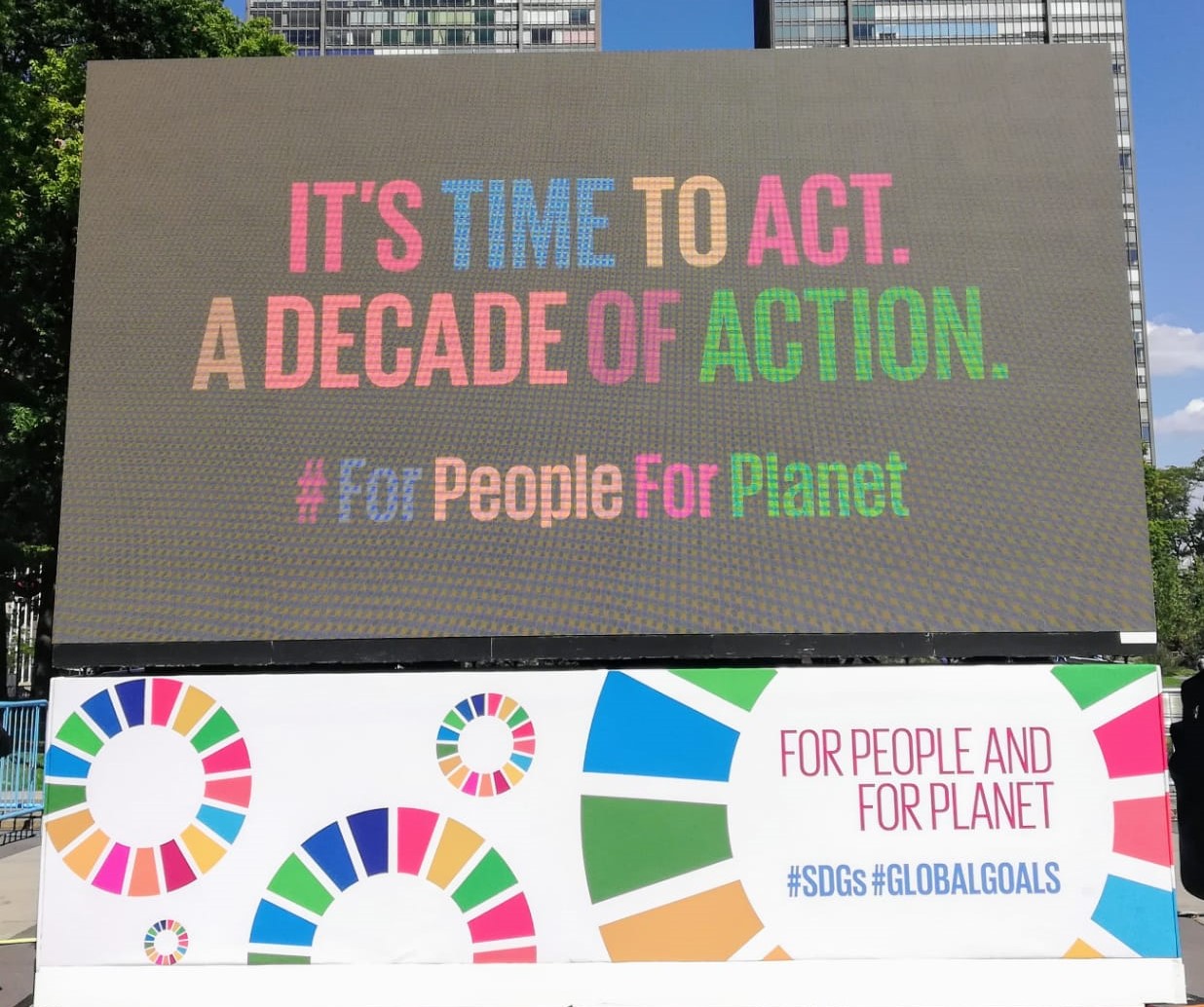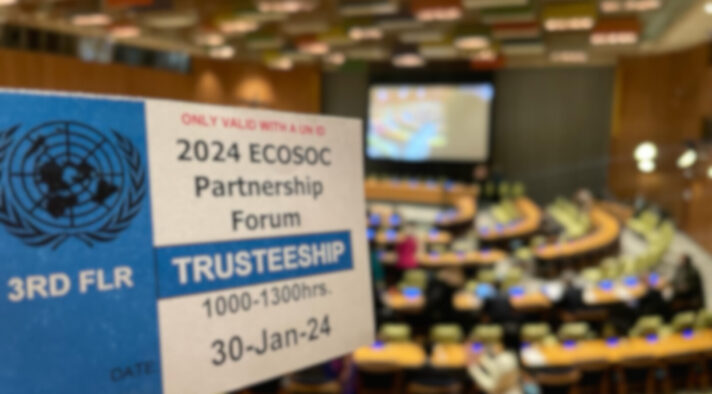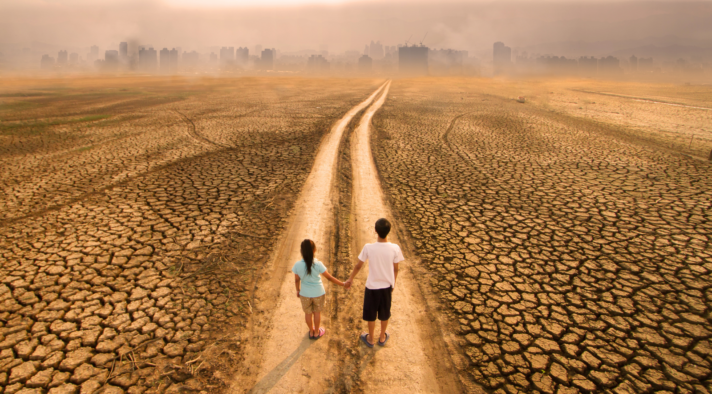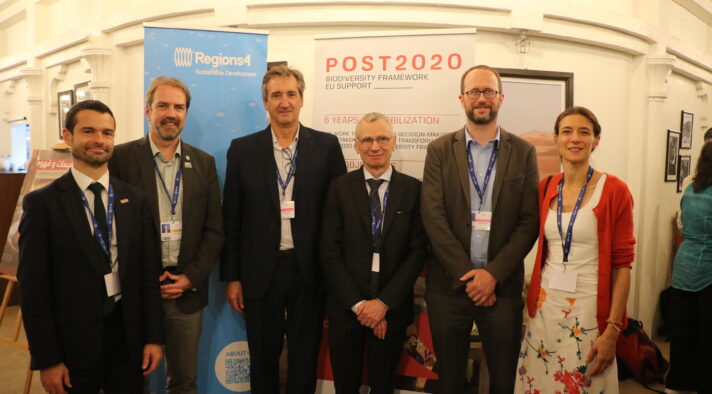Regions4 Secretariat and several regional governments’ highest representatives, such as Azuay, Basque Country, Catalonia, CONGOPE, Council of Governors, Flanders, Jalisco, Lombardy and Québec attended the SDG Summit on 24-25 September to contribute to the comprehensive review progress in the implementation of the 2030 Agenda for Sustainable Development and the 17 Sustainable Development Goals (SDGs).
In addition to attending the sessions of the SDG Summit, governments and all stakeholders were invited to submit acceleration actions in support of the 2030 Agenda. More than 100 acceleration actions were announced, and Lombardy and Catalonia were the only two regional governments selected by UN DESA to have publicised their initiatives to contribute to a speeded up implementation of the SDGs. They were invited to announce their SDG Acceleration Actions to the media via the SDG Media Zone.
Further information on both regional governments’ announcements can be found below:
- Mr. Raffaele Cattaneo, Minister for Environment and Climate of Lombardy
Video / Additional info - Mr. Damia Calvet, Minister of Territory and Sustainability of Catalonia
Video / Additional info
The SDG Summit was a great opportunity to organise bilateral meetings between Regions4 members. Among them, the President for the North, Ms Elena Moreno, Deputy Minister of Environment of the Basque Government, and the President for the South, Mr. Yaku Perez, Prefect of Azuay, met to further discuss strategies to strengthen the role of regional governments in international fora.

Regions4 members also met with a representative from the Division for Sustainable Development Goals of the United Nations Department of Economic and Social Affairs (UN DESA) and demanded the voice of regions to be heard at the United Nations, through a balanced representation of regional governments in global events.
2nd High-level Local and Regional Governments Forum
Alongside the SDG Summit, the Second Local and Regional Governments’ Forum (LRGF) was held on 24 September 2019, hosted by Cameroon and Morocco, and organised by UN entities and partners, including UN DESA, UN-Habitat and Local 2030, and the Global Task Force of Local and Regional Governments (GTF). It followed a first edition of the event organised in July 2018, on the sidelines of the UN High-Level Political Forum on Sustainable Development (HLPF).
The Forum considered the theme “Connecting global ambition and local action” and included sessions on triggering the transformation needed to address the climate challenge, good practices and experiences on implementing the 2030 Agenda at local level, as well as commitments for accelerated SDG implementation.
High-level representatives of local and regional governments outlined several SDG-related initiatives undertaken in cities and regions, reaffirmed city’s and region’s commitment to act as drivers of the acceleration needed to achieve the global goals, and stressed the need to “have a seat at the table” when discussing matters related to the 2030 Agenda. Participants noted insufficient progress on the 2030 Agenda and called for stronger involvement of local and regional governments, explaining that cities and regions are at the forefront of sustainable development issues. They alerted the need for more awareness raising, capacity building and “significant” public and private investment.
Among the panelists, Maimunah Mohd Sharif, Executive Director of UN‐Habitat emphasized that “it is crucial to have local and regional governments engaged in the 2030 Agenda. They are the ones that make the SDGs happen.” Maria-Francesca Spatolisano, UN Assistant Secretary-General for Economic and Social Affairs, said “local and regional governments have the potential to be the game changers in making the SDGs a reality for all in ensuring no one is left behind, and in creating opportunities for decoupling economic growth from environmental degradation.”
Regions4 members brought an integrated territorial perspective that goes beyond urban centers and addresses rural and ecological areas that are fundamental to the natural environment.
Yaku Perez, Prefect of Azuay and President for the South of Regions4, noted the disparities within territories and between the Global North and South, stressing the urgent need to speed up actions to meet the SDGs in time: “We need to act now, no excuses, no delays.”
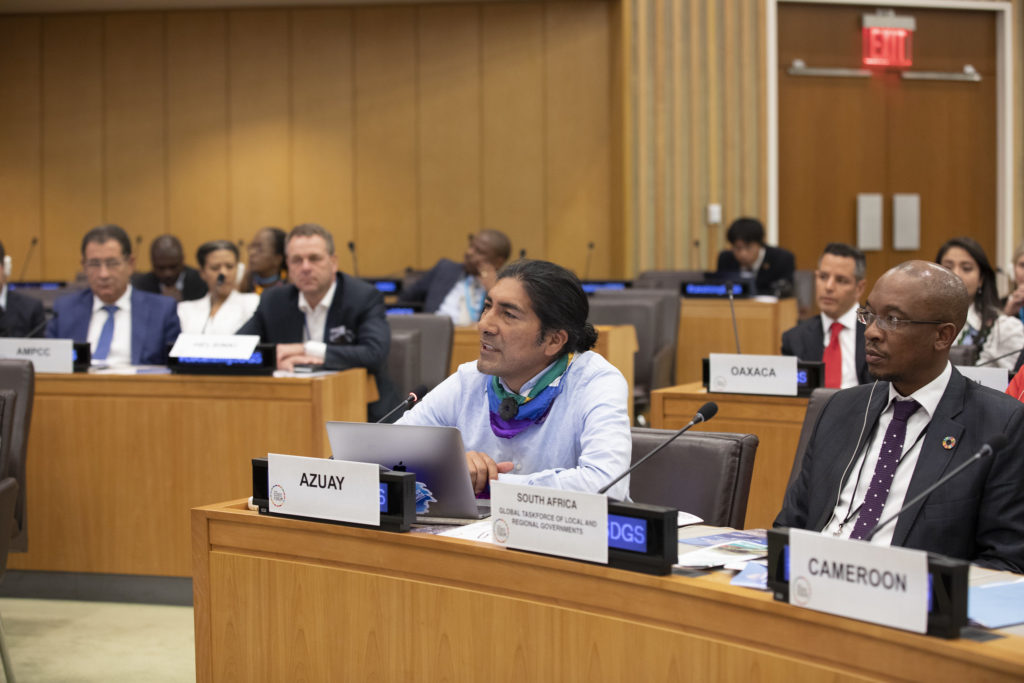
Pablo Jurado Moreno, Prefect of Imbabura and President CONGOPE underlined that “the UN can be strengthened if incorporate local and regional governments, considering that multi-level action is increasingly important”, and he called for local, regional and national governments to join forces to avoid redundant efforts and ineffective results.
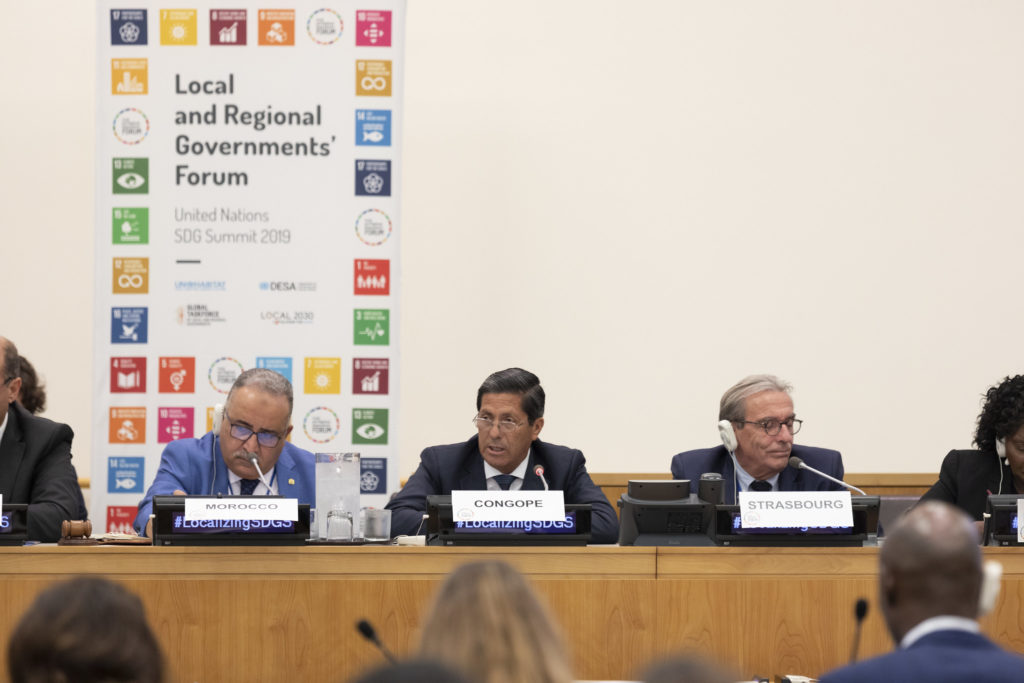
The LRGF adopted the Statement of the GTF calling for recognition of the leadership of local and regional leaders in providing public services for the achievement of the SDGs. The LRGs commitments and efforts are indispensable and integral to the transformation we need.
The archived webcast of the LRGF can be found here.
Moving ahead and next steps
Regions attending the SDG Summit and LRGF reconfirmed the commitment with the localisation of the 2030 Agenda in their territories. They were able to showcase results on SDG implementation, to take stock of the lessons learned until now, and to explore new partnerships. It was an essential space for dialogue between the different spheres of government and the United Nations system. It is expected that the Local and Regional Governments’ Forum will become a permanent modality, while the HLPF carries an internal review, in order to further improve the opportunities for participation and the format of the discussions undertaken.
For a report on the 2019 SDG Summit click here
To view the photo gallery of Regions4 at the SDG Summit & the Second LRGF click here
We invite all regions worldwide to join our #RegionsVoice campaign by clicking here
